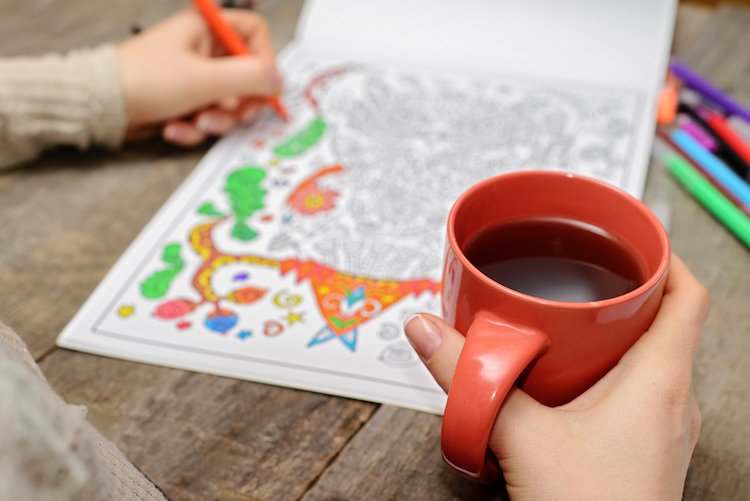When you're feeling lonely it can be easy to sit around feeling sorry for yourself. Instead, try one of these 11 ideas from Calvin Holbrook to relieve the pain of loneliness and isolation.
Loneliness sucks. I've been there and maybe you have too: stuck alone at home wishing you were out having fun with friends. Instead, for whatever reason, you're inside feeling lonely and wondering how and why you ended up in that position.
However, feeling lonely isn't your fault and can often be a result of life circumstances: perhaps you've just moved to a new town/city and are struggling to make new friends. Maybe you've just come out of a relationship – or all your friends are suddenly getting into relationships. Or perhaps you've been struggling with depression or anxiety and can't face seeing your social network right now. Whatever the reason, science says that feeling alone for long periods of time is bad for your mental – and physical – health.
In fact, studies show that a lack of social connections could be as harmful to our health as smoking 15 cigarettes a day. The same research suggests that loneliness increases the likelihood of mortality by a staggering 26 per cent. So, friendships can be powerful tools for staying well and healthy.
But not all of us have a large circle of buddies. In the UK, 1.9 million older people often feel ignored or invisible. But contrary to popular opinion, it's not just the elderly that have feelings of loneliness: over 40 per cent of Britons say the TV or a pet is their main source of company. Similarly, in the US, nearly half of all Americans claim to feel lonely. Indeed, social isolation can touch us at any age, and can be affected by our personality, motivation and physical location.
Feeling lonely? Here's what you can do
Developed countries are clearly going through a loneliness epidemic. So, what can you do if you are one of those affected? Well, there are plenty of ways you can make new friends as an adult, such as joining social groups or developing bonds with colleagues, but if you're feeling lonely at home right now and are seeking ways to cope with negative feelings, here are 11 practical ideas to help you feel better and combat the pain of loneliness.
1. Welcome an old friend: loneliness
First of all, even though it may not be welcome, treat loneliness as an old friend that’s just popped by for a visit. That's because resisting loneliness only makes it worse, so accept how you feel in this moment. Do not blame yourself. Instead of fighting against lonely feelings, accept these painful emotions into your heart with self-compassion and it will help ease the pain a little. Accept your loneliness and make friends with it.
2. Get creative
If you're feeling lonely it can be easy to start ruminating over how you’re in that position and whether you could have done things differently to avoid it. Getting creative is a simple and fun way to take your mind off of your thoughts and engaged in something more productive. You could try mandala coloring, making a collage out of magazines, drawing, or writing, for example. Being creative will keep your mind busy and provide you with a sense of satisfaction and achievement.

Colour your life when you're feeling lonely © shutterstock/Serhii Krot
3. Write a gratitude journal
Accept your feelings of loneliness and instead of dwelling on them, shift your consciousness to all the great things in your life that you're grateful for. Take ten minutes to write everything down in a gratitude journal. Journals help us to know ourselves better by clarifying our thoughts, emotions and feelings. In fact, a 2015 study published in Europe’s Journal of Psychology suggested that practising gratitude may help decrease feelings of loneliness, and, in turn, possibly improve our health, well-being and happiness.
4. Give your brain a puzzle
Use your alone time positively to boost your brainpower by doing a jigsaw or crossword. When solving a jigsaw, we must look at different pieces to figure out where they fit within the larger picture. Doing this improves our visual-spatial reasoning. As well as helping to relieve loneliness, studies show that doing puzzles can help delay the symptoms of dementia and Alzheimer’s disease. Completing a jigsaw also reduces stress by occupying and engaging the mind to create a sense of calm. As a puzzle is pieced together, external worries and stress decrease as the mind focuses on a task that is both meditative and satisfying.
“Whatever the reason, science says that feeling alone for long periods of time is bad for your mental – and physical – health.”
5. Get out of the house
Unless you’re keeping occupied with some of the loneliness-busting tips above, staying inside alone will only mean you concentrate more on those feelings of isolation. Simply going outside for a walk outside changes your environment and thoughts. Take a stroll and practise mindfulness, taking in all that is around you: the smells, sounds and sights. Or, try something cultural: pop to an exhibition or treat yourself to a film and get engrossed in something other than loneliness: see it as a personal date night! Alternatively, if you have green space nearby, have a walk in a park or do some forest bathing – the benefits of connecting with nature are proven by science.

If you're feeling alone, take a mindful walk in nature
6. Get active
Doing physical exercise is a great way to take your mind off your situation if your feelings of loneliness are taking over. Instead of mulling over things inside, head outside for a jog or run and boost your happiness hormones. Better still, head to the gym and try a new group class – you're more likely to strike up a conversation with someone. And if you do find yourself chatting with someone new and hit it off, don’t be afraid to ask for their number or ask them to go for a coffee together. You never know; they may be feeling just as lonely as you.
7. Sing out loud
Singing is another proven way to fight the feeling of being alone, so blast out some of your favourite tracks and get those vocal chords warmed up. In fact, singing is a natural anti-depressant as it’s known to release mood-boosting endorphins. It's also been shown to boost our immune system, reduce stress levels and, according to a report published in the Journal of Music Therapy in 2004, help patients cope with chronic pain.
Joining a choir is a great way to reap the benefits of singing and combat feelings of loneliness as you meet many new people at once. The Community of Voices research study (2012–2018) found that singing in a community choir for six months reduced the participants’ feelings of loneliness and also increased their interest in life.

Singing in a choir can combat loneliness © shutterstock/Monkey Business Images
8. Share your skills with others
Getting involved as a volunteer is a fantastic practical way to reduce feelings of loneliness. Volunteering for at least two hours a week may go a long way toward helping to ease feelings of loneliness and isolation, according to research published in Journals of Gerontology: Social Sciences. Volunteering almost always involves interacting with others, hence helping to build social connections and reduce isolation. In fact, the benefits of volunteering are many. If you're feeling alone, think about possible volunteering ideas and start researching what you can do in your local community.
RELATED: Why is volunteering important?
9. Check in with yourself
It’s OK to feel alone sometimes. Remind yourself that life isn't always fun and games and that there are plenty of ups and downs. Indeed, your circumstances will not always be the same and nothing last for ever – good or bad. Try to be patient with your loneliness, and with time and effort, it will ease. Remember that tomorrow is a new day when you can consider working on alleviating your loneliness and making new friends – if you're ready.
10. Consider getting a pet
If you have the space and time, think about welcoming a pet into your home. The companionship that a pet offers is scientifically-proven to reduce loneliness, anxiety and stress, whether it’s a cat, bird, gerbil or iguana. However, dogs are the clear winners when it come to loneliness-busting pets: they force you to get out of the house and connect with other dog-loving humans. The healing power of pets is real.

Animals, especially dogs, help to relieve loneliness
11. Use compassionate visualization
As I wrote at the start of this article, perhaps you're feeling lonely while other friends are having fun while you're left alone. You could even feel jealous and envious of these people who are sharing good times together and seemingly not living with loneliness. Perhaps you weren't invited to a party or group holiday and feel upset about it. However, instead of carrying negative thoughts about those involved, show compassion. Try to visualize them at whatever event it may be and feel happy for them regardless. Feeling happy for others despite your sorrow can be healing and actually make you feel happier too. ●
Main image: shutterstock/Antonio Guillem
How do you deal with feeling of loneliness? Do you have any other ideas to add to the list? I'd love to read your suggestions below! Head over to the Forum to share more ideas on combating loneliness.
Written by Calvin Holbrook
 Calvin edits the happiness magazine, as well being an artist and travel lover. He also enjoys hiking, nature, swimming, yoga, sweaty dancing, and all things vintage!
Calvin edits the happiness magazine, as well being an artist and travel lover. He also enjoys hiking, nature, swimming, yoga, sweaty dancing, and all things vintage!



Join the conversation
You are posting as a guest. If you have an account, sign in now to post with your account.